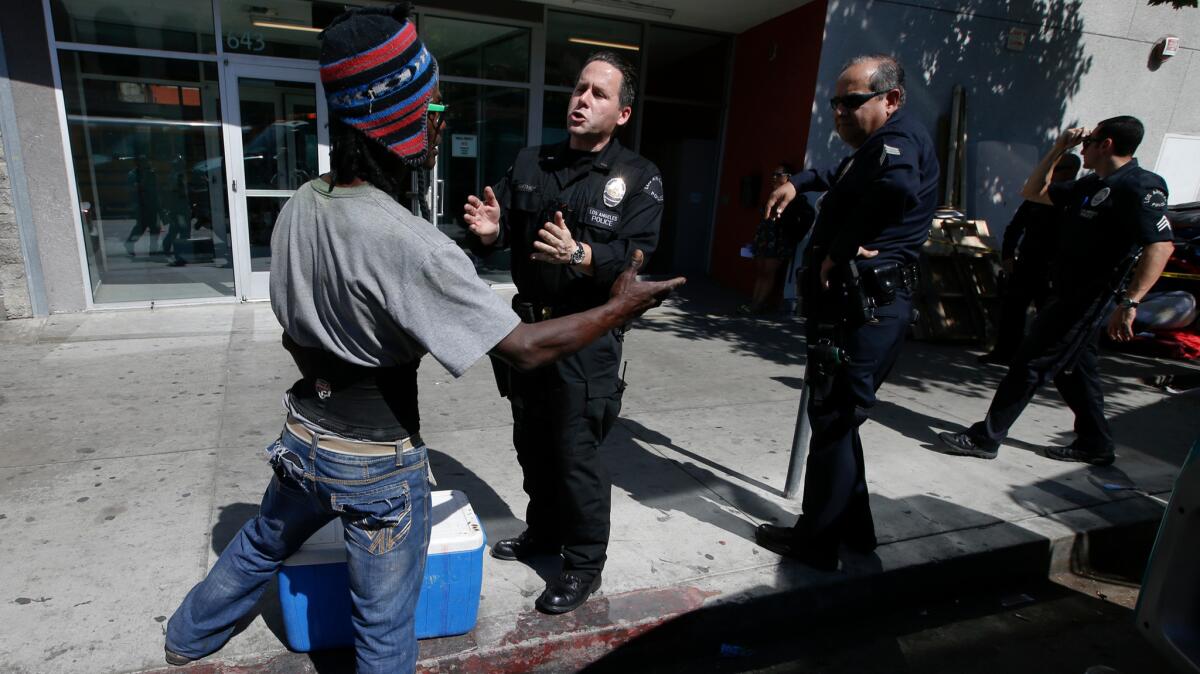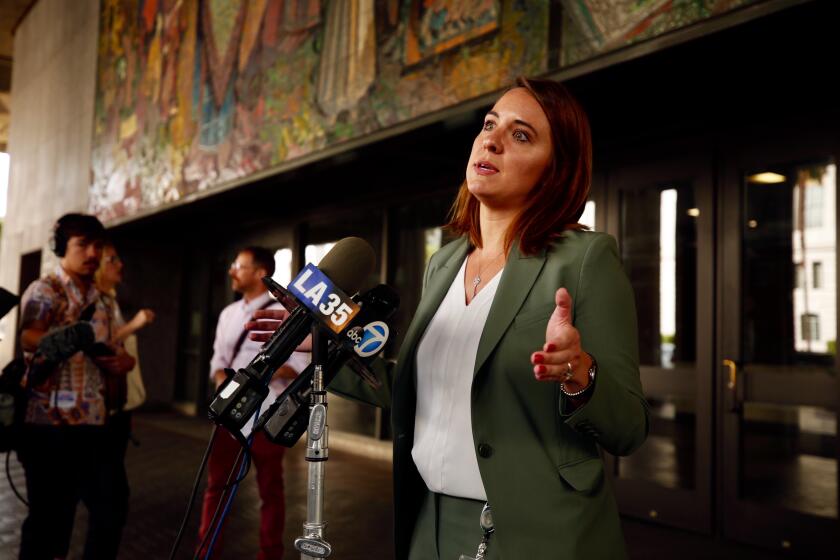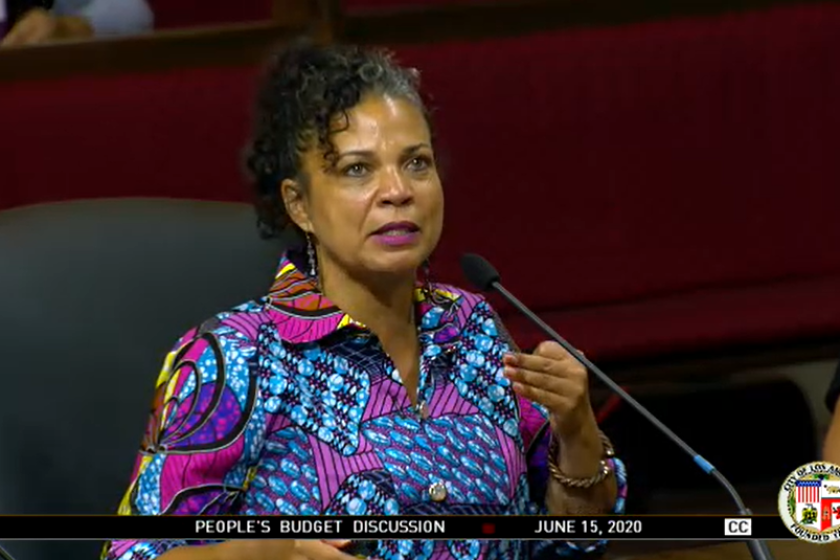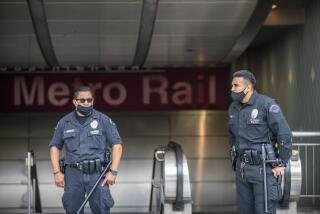Unarmed specialists, not LAPD, would handle mental health, substance abuse calls under proposal

Several Los Angeles City Council members called Tuesday for a new emergency-response model that uses trained specialists, rather than LAPD officers, to render aid to homeless people and those suffering from mental health and substance abuse issues.
A motion submitted by City Council members Nury Martinez, Herb Wesson, Marqueece Harris-Dawson, Curren Price and Bob Blumenfield asks city departments to work with the Los Angeles Police Department and Los Angeles Homeless Services Authority to develop a model that diverts nonviolent calls for service away from the LAPD and to “appropriate non-law enforcement agencies.”
The LAPD now has a “greater role in dealing with homelessness, mental health and even COVID-19-related responses” the motion states, blaming budget cuts to social service programs for the city’s increased reliance on police officers.

Nationwide, protesters and activists have been calling to “defund the police.” But what does it actually mean? And why are so many people calling for it to happen?
“We have gone from asking the police to be part of the solution, to being the only solution for problems they should not be called on to solve in the first place,” the motion said.
The petition is the latest eruption of a longstanding debate within the Los Angeles Homeless Services Authority over how — or whether — to work with law enforcement.
It’s unclear how large the new response team would be, but in a statement, council members cast the program as part of an effort to reimagine public safety and reduce unnecessary police interactions.
Representatives for the Los Angeles Police Protective League, the union representing rank-and-file officers, have previously pointed to the increased demands placed upon police officers, saying officers now perform the duties of therapists, drug treatment counselors, social workers and EMTs.
Jerretta Sandoz, vice president of the union’s board of directors, said Tuesday that the union agreed that “not every call our city leaders have asked us to respond to should be a police response.”
“We are more than willing to talk about how, or if, we respond to noncriminal and nonemergency calls so we can free up time to respond quickly to 911 calls, crackdown on violent crime, and property crime and expand our community policing efforts,” Sandoz said.
The council members’ motion comes after tens of thousands of people have protested in Los Angeles streets in recent weeks, decrying police brutality and calling for a new approach to long-held strategies over policing, particularly in Black communities.
The City Council on Tuesday also voted to move ahead with studying ways to cut the LAPD’s budget by $100 million to $150 million and put the money into community programs. The council vote was 11-3, with Councilmen Paul Koretz, Joe Buscaino and John Lee dissenting.
A report back to the council on those proposed budget cuts is expected in the coming weeks.
The People’s Budget effectively calls for the dismantling of the LAPD, with the proceeds devoted to housing, healthcare, mental health, parks and many other services.
Buscaino, a former police officer who now serves as a reserve officer, told The Times that his no vote reflected his belief that “real police reform” will come from expanding an existing LAPD program focused on building relationships between police officers and communities.
Separately, the council members’ motion submitted Tuesday also asks for a report back on crisis intervention models, including the “Cahoots” program in Eugene, Ore. The program, short for Crisis Assistance Helping Out on the Streets, sends in teams of medics and mental health counselors if 911 operators determine armed intervention isn’t needed.
The program’s teams handled 18% of the 133,000 calls to 911 last year, requesting police backup only 150 times, Chris Hecht, executive coordinator of White Bird Clinic, which runs the operation, said in an interview.
The program operated on a $2-million budget last year that Hecht said saved the Eugene-Springfield, Ore., area about $14 million in costs of ambulance transport and emergency room care.
Times staff writer Richard Read, in Seattle, contributed to this report.
More to Read
Sign up for Essential California
The most important California stories and recommendations in your inbox every morning.
You may occasionally receive promotional content from the Los Angeles Times.













